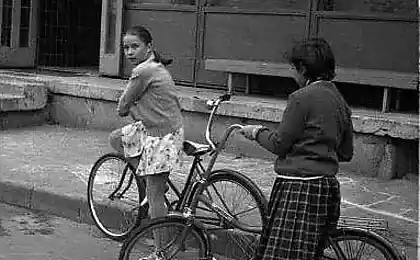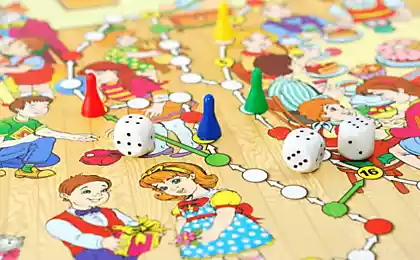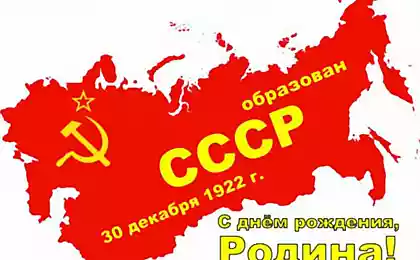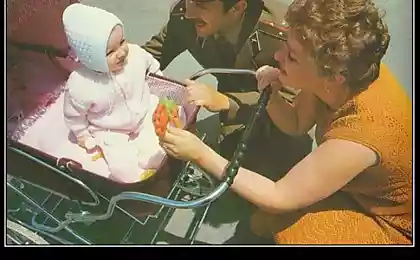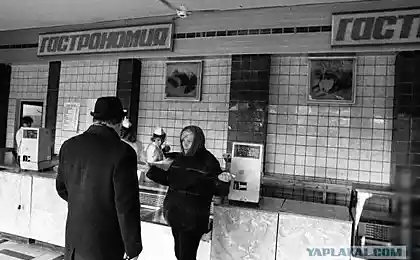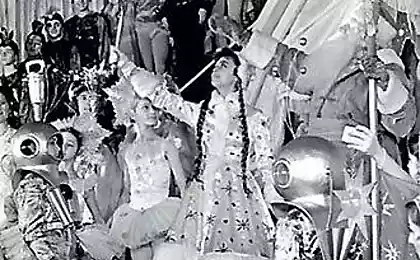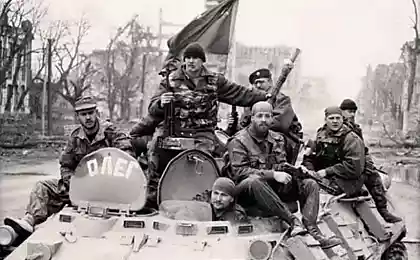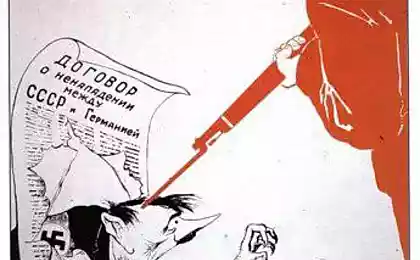204
If you think that in the Soviet era people were extremely polite and polite, you just did not visit these places.
We are often nostalgic for the wonderful times of our youth in the USSR. Memory is amazing stuff. It erases bad memories and leaves only good and bright ones. For example, many people tend to believe that the politeness of a person of Soviet temper was a reference. The younger ones never humiliated the older ones, and the men always gallantly held the ladies door and gave them a hand when leaving the transport.
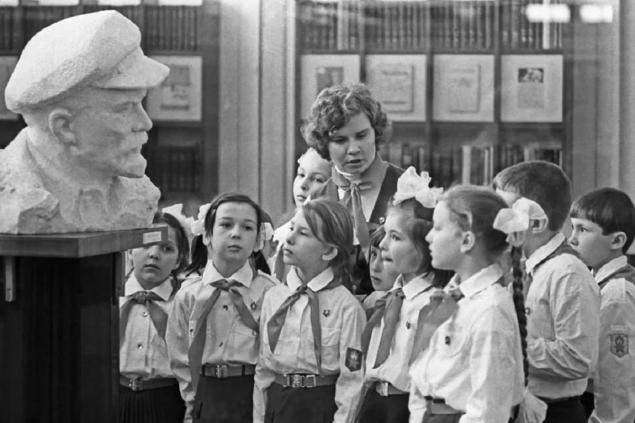
Indeed, then the children were brought up in strictness according to the precepts of communism. But there were other things that affected the character of Soviet citizens. Commodity shortage, eternal queues and living in communal apartments provoked squabbles and scandals. Today. "Site" 6 episodes of life in the USSR, where rudeness and rudeness were the norm.
In Soviet times, the seller was a particularly revered profession, but no one knew about the Western slogan “The customer is always right”. These people had access to scarcity and often hollowed out the tastiest pieces for themselves and their acquaintances.
But ordinary visitors often flew a caustic word instead of greeting. You could throw with a sour mine that the desired products have ended, and begin to stubbornly “steal” delay. But someone who knew the code word (for example, "I am from Vasily Ivanovich") would go home with bags full of fresh goodies.
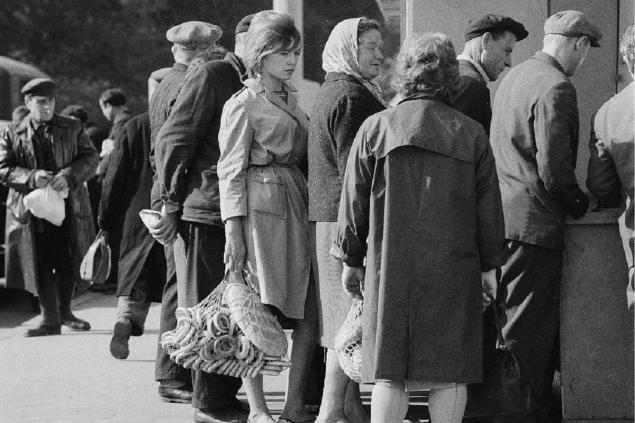
Instagram Humility blossomed in exuberant color and in queues. Quite often, citizens arranged scuffles, figuring out who decided to cheat and skip first. Occasionally, a person is in line in front of the store for half a day, and in front of him the goods will run out. And how not to get angry and not scratch?
Any Soviet man paled and timid before going to the lair of bureaucratic red tape. No one was spared here. Employees of the passport desk brought the visitor to hiccups, forcing him to run from window to window for a particular piece of paper. Sometimes a person could spend the whole day in a state house and not close his question.
A trip to the clinic cost Soviet citizens an extra bottle of valerian. To get a ticket, you had to come long before the opening, take a queue at the registry office and beg luck to the employee found your card. The doctors were also not on ceremony with the patient. Most of them knew nothing about the ethics of communication with the patient, could rudely and quickly expel a person without condescending to a more thorough examination.

Soviet schoolchildren also received their share of “education” not only from strict teachers, but also from school cleaners. The latter could whip the poor lad with a rag, if he walked on the freshly washed floor.
City buses, trolleybuses and trams often became places where young pioneers learned their first swear words. In those days, few people could afford a private car. So the Soviet man began his morning in a packed public transport with dozens of workers rushing to work. Although the buses ran every 2-3 minutes, they were always impossible to push.
In such a hustle and bustle, skirmishes were inevitable. I touched the bag, tore the only stockings with an umbrella, stepped on my foot - and now the whole bus enthusiastically enters into a skirmish. These trips were not a joke.
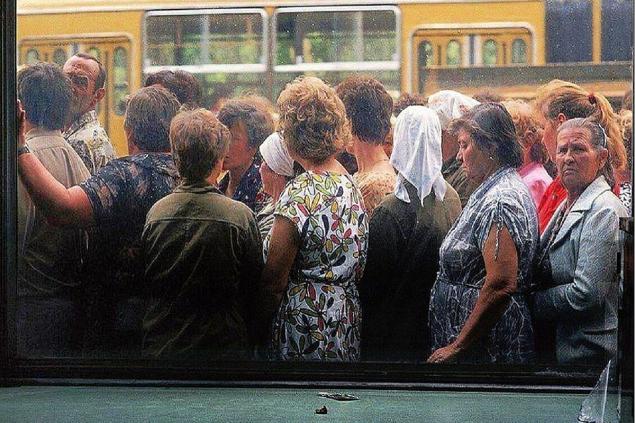
Many people did not stand up, got out of the transport after a couple of stops and walked. Often after such an attraction, people came to work excited and took evil on others. So, get a charge of hate and pass on.
Living side-by-side with strangers for many years is a difficult experience. Neighbors in the communal apartment were forced to become large families of distant and unloved relatives. Rarely have residents of the same hostel peacefully rubbed each other. And not a day went by that scandal broke out because of the queue in the bathroom, dirty kitchen stove or noisy night parties.
Alas, the neighbors in the hostel chose the finger of fate. Therefore, in one room could live factory workers, doctors of science, mothers with many children and even former prisoners. The diverse audience hardly found a common language, but memories remained for life!
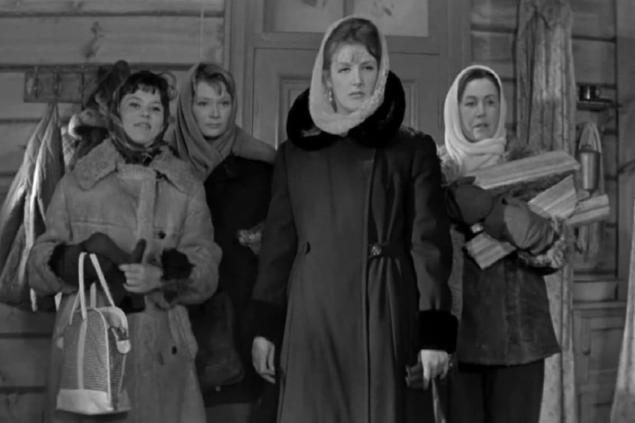
GettyImages Highways Observe traffic rules and road etiquette? No, the Soviet people heard about it, but did not rush to fulfill it. Car owners rarely considered pedestrian rights and clipped them on zebras. Police officers, as a rule, did not fear violators. Therefore, crossing the street at a pedestrian crossing and staying whole was a great luck.
Drivers were hardly aware of road signs. The car could be parked on the second and third rows right under the warning "Parking prohibited". Leaving your “swallow” on the playground or on the lawn was also unconscionable.
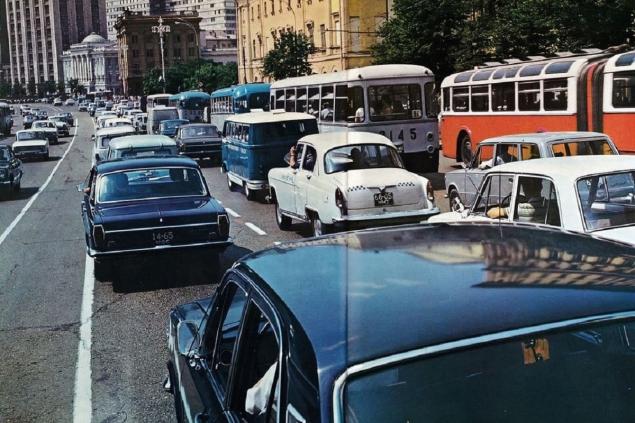
After getting into an accident, drivers left the car and began sanding each other with feeling, inspiration. They could stop the movement, but not for a moment distracted.
What is today, what is decades ago, God’s dandelions in handkerchiefs sat on the bench all day long and sneezed all the residents of the entrance. These old scouts were a source of gossip and censure throughout the house. They always knew exactly who, with whom and at what time he came home and what he was wearing.
Observant old women regularly spread details about the lives of neighbors and gave unsolicited advice. It used to be that they sent a strong word after arrogant young people who forgot to say hello.

What examples can you give? Share it in the comments.

Indeed, then the children were brought up in strictness according to the precepts of communism. But there were other things that affected the character of Soviet citizens. Commodity shortage, eternal queues and living in communal apartments provoked squabbles and scandals. Today. "Site" 6 episodes of life in the USSR, where rudeness and rudeness were the norm.
In Soviet times, the seller was a particularly revered profession, but no one knew about the Western slogan “The customer is always right”. These people had access to scarcity and often hollowed out the tastiest pieces for themselves and their acquaintances.
But ordinary visitors often flew a caustic word instead of greeting. You could throw with a sour mine that the desired products have ended, and begin to stubbornly “steal” delay. But someone who knew the code word (for example, "I am from Vasily Ivanovich") would go home with bags full of fresh goodies.

Instagram Humility blossomed in exuberant color and in queues. Quite often, citizens arranged scuffles, figuring out who decided to cheat and skip first. Occasionally, a person is in line in front of the store for half a day, and in front of him the goods will run out. And how not to get angry and not scratch?
Any Soviet man paled and timid before going to the lair of bureaucratic red tape. No one was spared here. Employees of the passport desk brought the visitor to hiccups, forcing him to run from window to window for a particular piece of paper. Sometimes a person could spend the whole day in a state house and not close his question.
A trip to the clinic cost Soviet citizens an extra bottle of valerian. To get a ticket, you had to come long before the opening, take a queue at the registry office and beg luck to the employee found your card. The doctors were also not on ceremony with the patient. Most of them knew nothing about the ethics of communication with the patient, could rudely and quickly expel a person without condescending to a more thorough examination.

Soviet schoolchildren also received their share of “education” not only from strict teachers, but also from school cleaners. The latter could whip the poor lad with a rag, if he walked on the freshly washed floor.
City buses, trolleybuses and trams often became places where young pioneers learned their first swear words. In those days, few people could afford a private car. So the Soviet man began his morning in a packed public transport with dozens of workers rushing to work. Although the buses ran every 2-3 minutes, they were always impossible to push.
In such a hustle and bustle, skirmishes were inevitable. I touched the bag, tore the only stockings with an umbrella, stepped on my foot - and now the whole bus enthusiastically enters into a skirmish. These trips were not a joke.

Many people did not stand up, got out of the transport after a couple of stops and walked. Often after such an attraction, people came to work excited and took evil on others. So, get a charge of hate and pass on.
Living side-by-side with strangers for many years is a difficult experience. Neighbors in the communal apartment were forced to become large families of distant and unloved relatives. Rarely have residents of the same hostel peacefully rubbed each other. And not a day went by that scandal broke out because of the queue in the bathroom, dirty kitchen stove or noisy night parties.
Alas, the neighbors in the hostel chose the finger of fate. Therefore, in one room could live factory workers, doctors of science, mothers with many children and even former prisoners. The diverse audience hardly found a common language, but memories remained for life!

GettyImages Highways Observe traffic rules and road etiquette? No, the Soviet people heard about it, but did not rush to fulfill it. Car owners rarely considered pedestrian rights and clipped them on zebras. Police officers, as a rule, did not fear violators. Therefore, crossing the street at a pedestrian crossing and staying whole was a great luck.
Drivers were hardly aware of road signs. The car could be parked on the second and third rows right under the warning "Parking prohibited". Leaving your “swallow” on the playground or on the lawn was also unconscionable.

After getting into an accident, drivers left the car and began sanding each other with feeling, inspiration. They could stop the movement, but not for a moment distracted.
What is today, what is decades ago, God’s dandelions in handkerchiefs sat on the bench all day long and sneezed all the residents of the entrance. These old scouts were a source of gossip and censure throughout the house. They always knew exactly who, with whom and at what time he came home and what he was wearing.
Observant old women regularly spread details about the lives of neighbors and gave unsolicited advice. It used to be that they sent a strong word after arrogant young people who forgot to say hello.

What examples can you give? Share it in the comments.
Marina Zudina appeared in public after another plastic, fans in shock
My husband and I lived in our hearts until one day he told me his terrible secret.

